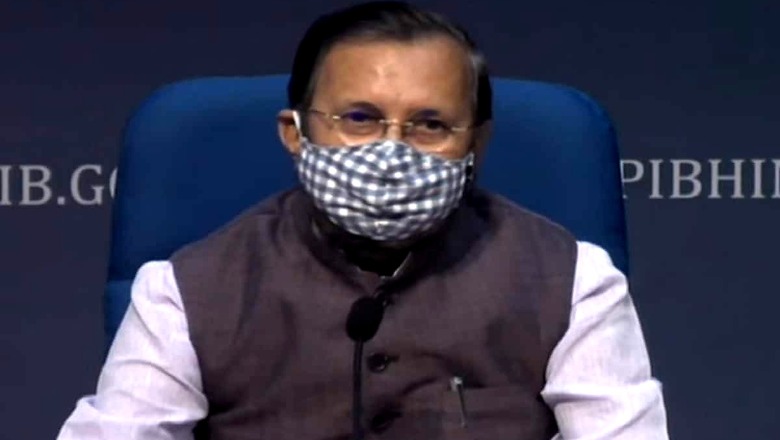
views
The Union Cabinet on Wednesday approved ratification of the Stockholm Convention by banning seven hazardous chemicals that are harmful for health and environment. The seven banned chemicals are listed as Persistent Organic Pollutants (POPs) under the Stockholm Convention. Making the announcement, Union Environment Minister Prakash Javadekar said, ”We’ve done ratification of the Stockholm Convention.
Seven chemicals that are hazardous to health and environment have been banned. India is giving out a positive message to the world that we’re also active in this area and we don’t tolerate health and environmental hazards.” The Cabinet has delegated its powers to ratify chemicals under the Stockholm Convention to the Ministry of External Affairs (MEA) and the Ministry of Environment, Forest and Climate Change (MOEFCC) in respect of POPs already regulated under the domestic regulations thereby streamlining the procedure.
The Stockholm Convention is a global treaty to protect human health and environment from POPs, which are identified chemical substances that persist in the environment, bio-accumulate in living organisms, adversely affect human health/environment and have the property of long-range environmental transport (LRET). Exposure to POPs can lead to cancer, damage to central and peripheral nervous systems, diseases of immune system, reproductive disorders and child development.
POPs are listed in various Annexes to the Stockholm Convention after thorough scientific research, deliberations and negotiations among member countries. India had ratified the Stockholm Convention on January 13, 2006, as per Article 25 (4), which enabled it to keep itself in a default ”opt-out” position such that amendments in various Annexes of the convention cannot be enforced on it unless an instrument of ratification/acceptance/approval or accession is explicitly deposited with the UN depositary.
Considering its commitment towards providing safe environment and addressing human health risks, the Ministry of Environment had notified the ’Regulation of Persistent Organic Pollutants Rules’ on March 5, 2018, under the provisions of the Environment (Protection) Act, 1986. The regulation prohibited the manufacture, trade, use, import and export of chlordecone, hexabromobiphenyl, hexabromodiphenyl ether and heptabromodiphenylether (commercial octa-BDE), tetrabromodiphenyl ether and pentabromodiphenyl ether (commercial penta-BDE), pentachlorobenzene, hexabromocyclododecane, and hexachlorobutadiene, which were already listed as POPs under the Stockholm Convention.




















Comments
0 comment